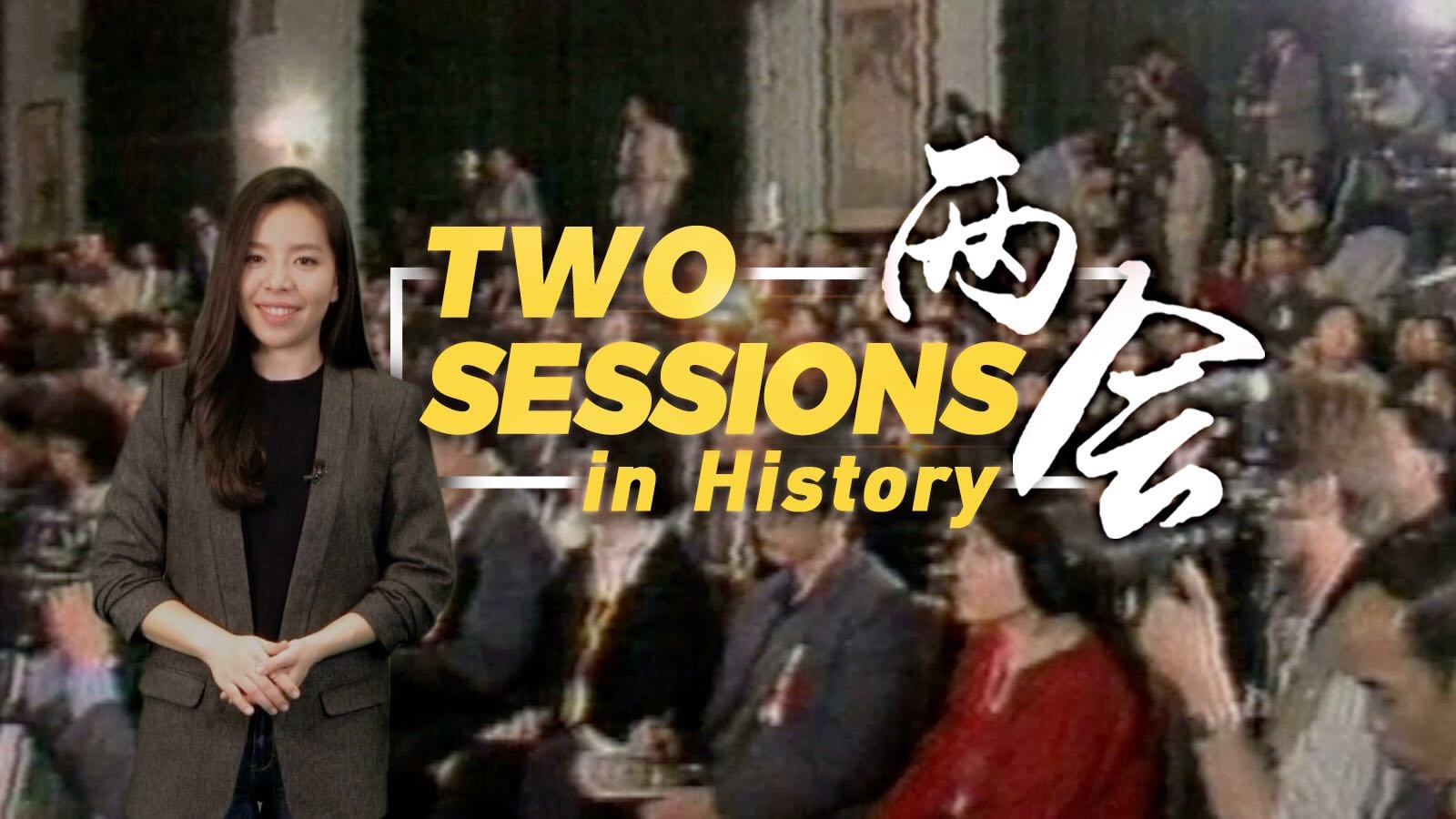China’s political season has arrived. Every year in March, two plenary meetings are held in Beijing, collectively known as the “Two Sessions” or Lianghui. They make up the biggest annual political event in the country, pushing forward the development of China. But where exactly did the idea of Lianghui originate?
It all started 69 years ago, when the first Chinese People's Political Consultative Conference, known today as China’s top advisory body, was held. Some 662 representatives from all walks of life attended the meeting, during which the founding of the People’s Republic of China was proclaimed. Beijing was made the capital of the PRC, the five-star red flag was designated as the national flag, and the March of the Volunteers was declared the national anthem – all at the same session.
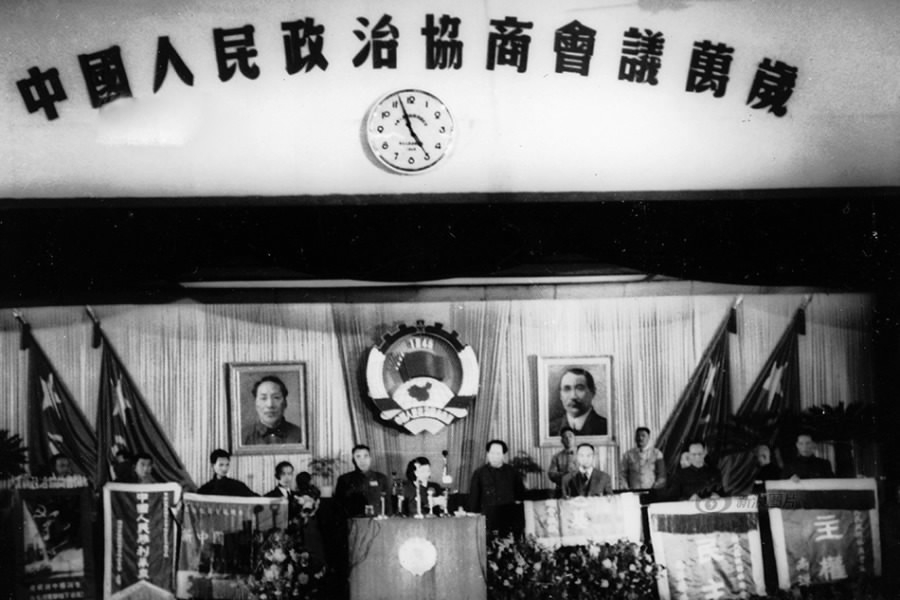
The first session of the first CPPCC is held in Beijing from Sept. 21 to 30, 1949. /Xinhua Photo
The first session of the first CPPCC is held in Beijing from Sept. 21 to 30, 1949. /Xinhua Photo
However, the second meeting that makes up the Two Sessions would not take place until five years later.
In 1954, the first National People’s Congress, or the top legislative body in China, was held. Deputies voted to pass the Constitution of the People's Republic of China.
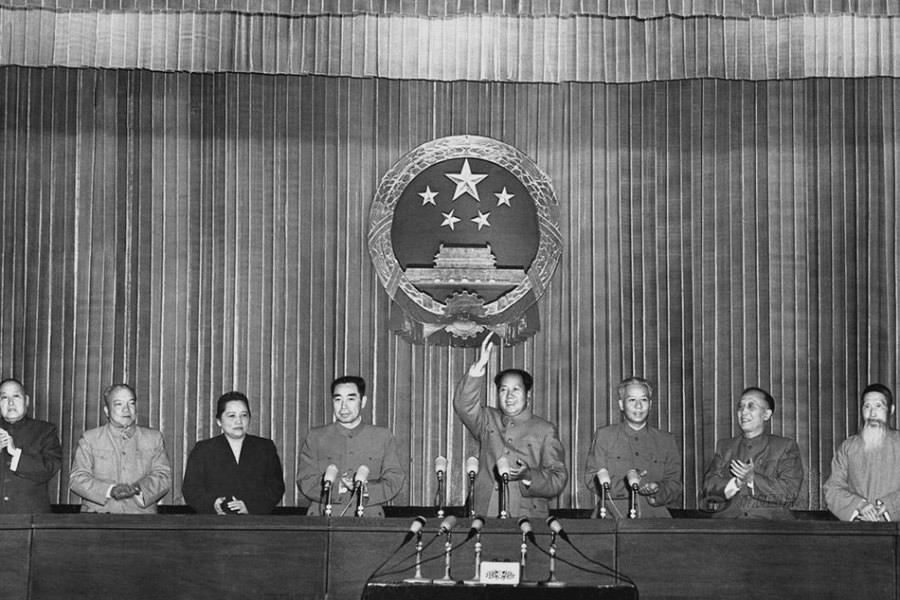
Chairman Mao Zedong waves to the attendees at the closing ceremony in Beijing during the first session of the 1st NPC, which was held from Sept. 15 to 28, 1954. /Xinhua Photo
Chairman Mao Zedong waves to the attendees at the closing ceremony in Beijing during the first session of the 1st NPC, which was held from Sept. 15 to 28, 1954. /Xinhua Photo
In 1960, the newly-built Great Hall of the People in Beijing was put into use and became the permanent host of the Two Sessions.
China began its reform and opening-up in 1978, developing itself into an economic powerhouse with its economy becoming the world’s second-largest by nominal GDP. As a nation, China has achieved remarkable development, and living standards in the country have improved considerably. Socialism with Chinese characteristics has demonstrated vigor and vitality.
In February of that year, the CPPCC restored its work after a 12-year hiatus due to the Cultural Revolution.
The Two Sessions was institutionalized in 1978 when seven laws were passed, China’s preliminary legal system was set up, and the country’s basic political system was established.
Thirty years ago, in 1988, there was a change in tenor during The Two Sessions. For the first time, delegates were debating with more vigor, and there were different opinions raised in public.
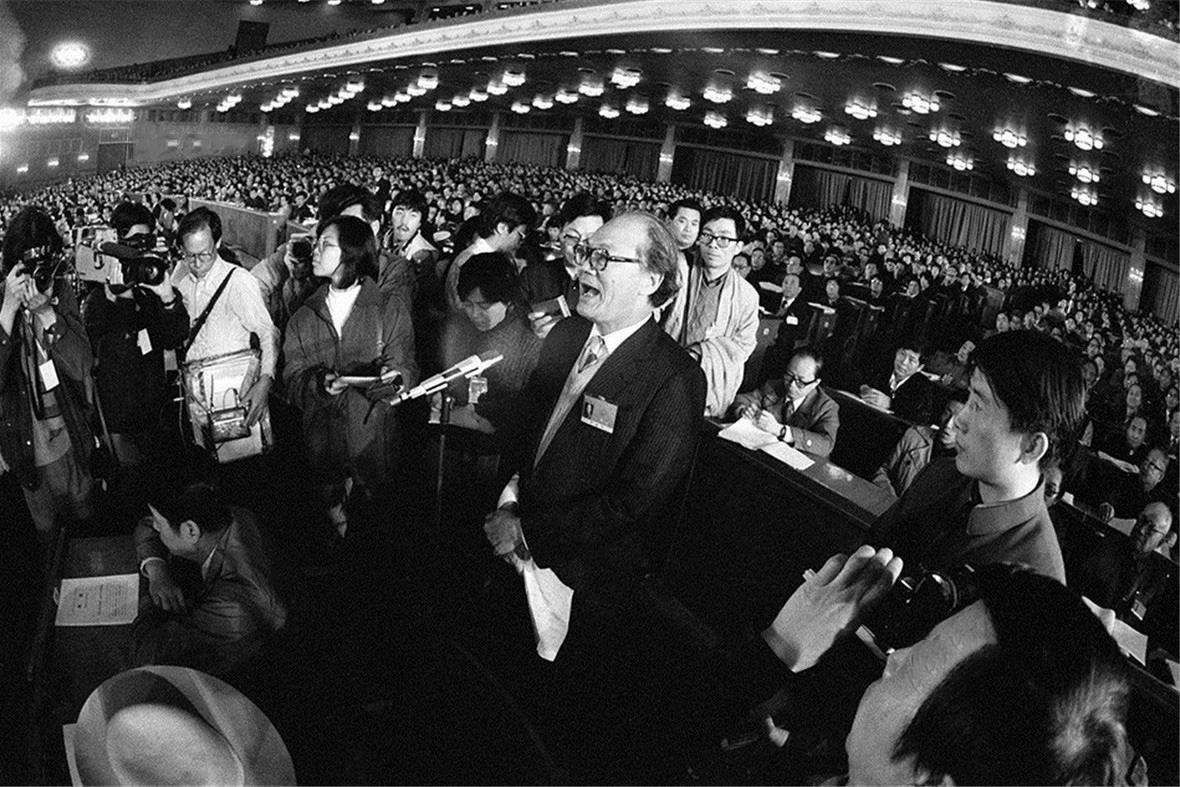
Delegate Huang Shunxing offering an alternative view at the 1978 conference. /VCG Photo
Delegate Huang Shunxing offering an alternative view at the 1978 conference. /VCG Photo
Also in 1988, the first Premier's press conference was held. More than 400 Chinese and international journalists attended the briefing and raised questions to then Premier Li Peng. It has since become a tradition.
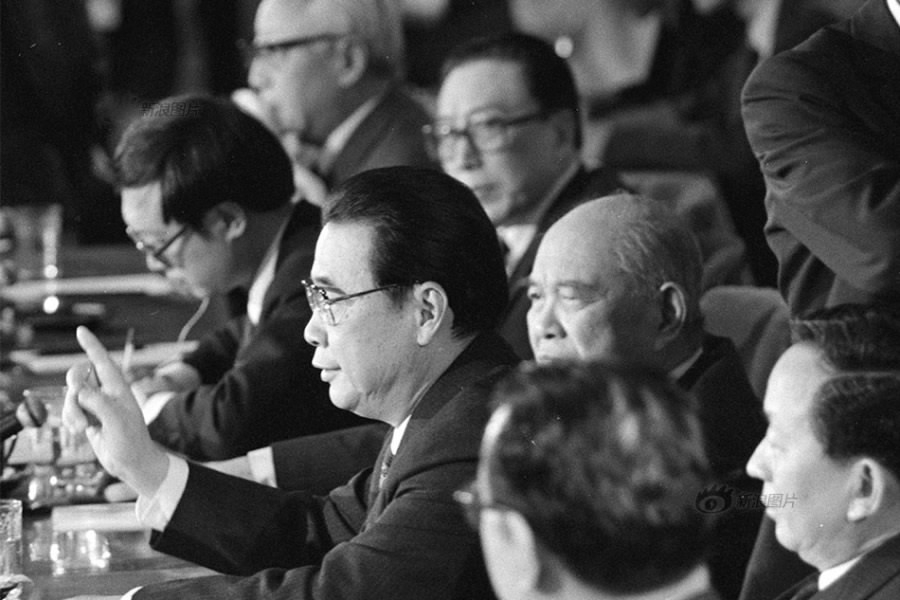
Then Premier Li Peng answers journalists' questions at a news conference on April 13, 1988. It was the first premier's press conference during the "Two Sessions". /Xinhua Photo
Then Premier Li Peng answers journalists' questions at a news conference on April 13, 1988. It was the first premier's press conference during the "Two Sessions". /Xinhua Photo
Ten years ago, in 2008, three migrant workers-turned-deputies attended the NPC. They were the first to represent the migrant workforce in China. The number has grown ten times in just five years.
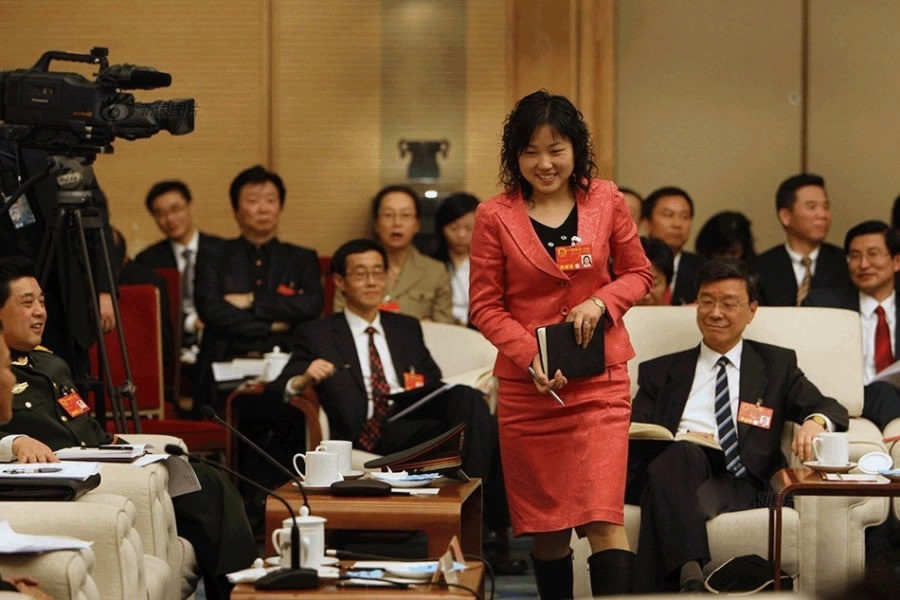
Zhu Xueqin, a migrant worker-turned deputy to the NPC, walks to the speaking desk during the "Two Sessions" in March 2008. Zhu was one of the three deputies who were the first to represent migrant workers across China. /Xinhua Photo
Zhu Xueqin, a migrant worker-turned deputy to the NPC, walks to the speaking desk during the "Two Sessions" in March 2008. Zhu was one of the three deputies who were the first to represent migrant workers across China. /Xinhua Photo
In 2013, the Great Hall of the People became once again the center of global attention. The new generation of China's top leadership was elected at the Two Sessions. Ever since then, China, led by Xi Jinping, has been working steadily towards achieving the great rejuvenation of the Chinese nation: from trying to achieve a moderately prosperous society in all respects and working on deepening reform efforts to advancing the rule of law and introducing the “13th Five-year Plan,” and emphasizing the need to strengthen the discipline of CPC members.
Major initiatives have been introduced, one after another.
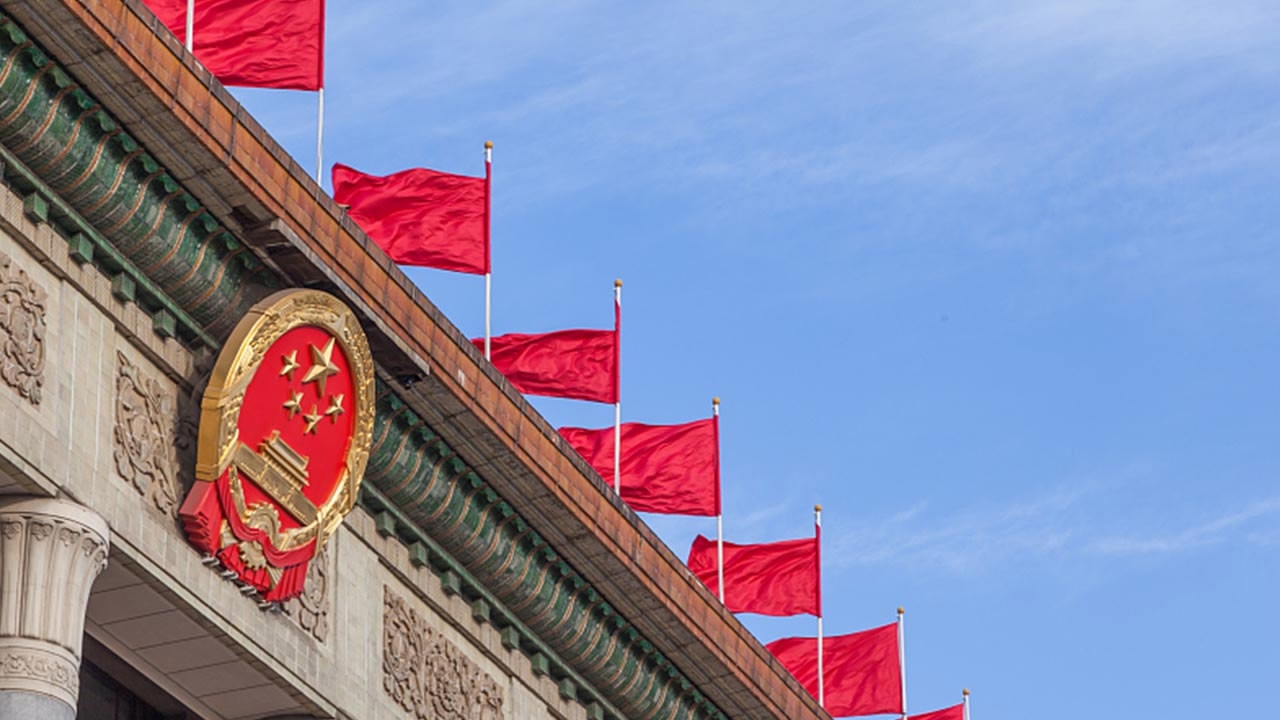
The Great Hall of the People. /Xinhua Photo
The Great Hall of the People. /Xinhua Photo
The Two Sessions marks China’s annual political high season. It plays a vital role in the history of the country’s development. This year’s Two Sessions is of high importance as it follows the 19th National Congress last October when a new central leadership for the CPC was elected to lead the Party, people and country for the next five years.
Beijing is taking center stage with all eyes fixed on lawmakers as they discuss proposals for significant constitutional changes and reform packages and vote on the next lineup of officials in top government posts.
Keep an eye on CGTN for all the updates on China’s annual political season.

